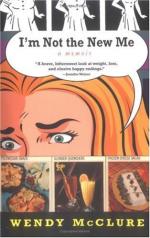[Illustration: GENERAL JOHN A. MCCLERNAND, COLLEAGUE OF LINCOLN’S IN CONGRESS.
Came to Illinois from Kentucky when a boy. Served in Black Hawk War, and was one of the earliest editors of the State. Served three terms in the state legislature, and in Congress. Was active in the war, rising to the rank of major-general. General McClernand is still living in Springfield, Illinois.]
A week after Congress organized, Lincoln wrote to Springfield: “As you are all so anxious for me to distinguish myself, I have concluded to do so before long;” and he did it—but not exactly as his Springfield friends wished. The United States were then at war with Mexico, a war that the Whigs abhorred. Lincoln had used his influence against it; but, hostilities declared, he had publicly affirmed that every loyal man must stand by the army. Many of his friends, Hardin, Baker, and Shields, among others, were at that moment in Mexico. Lincoln had gone to Washington intending to say nothing in opposition to the war. But the administration wished to secure from the Whigs not only votes of supplies and men, but a resolution declaring that the war was just and right. Lincoln, with others of his party in Congress, refused his sanction, voting a resolution that the war had been “unnecessarily and unconstitutionally” begun. On December 22d he made his debut in the House by the famous “Spot Resolutions,” a series of searching questions so clearly put, so strong historically and logically, that they drove the administration step by step from the “spot” where the war began, and showed that it had been the aggressor in the conquest. In January Lincoln followed up these resolutions with a speech in support of his position. His action was much criticised in Illinois, where the sound of the drum and the intoxication of victory had completely turned attention from the moral side of the question, and Lincoln found himself obliged to defend his position with even his oldest friends.
[Illustration: THE CAPITOL AT WASHINGTON IN 1846]
The routine work assigned him in the Thirtieth Congress was on the Committee on the Post-office and Post Roads. Several reports were made by him from this committee. These reports, with a speech on internal improvements, cover his published work in the House up to July. Then he made a speech which was at the time quoted far and wide.
In July Zachary Taylor had been nominated at Philadelphia for President by the Whigs. Lincoln had been at the convention, and went back to Washington full of enthusiasm. “In my opinion we shall have a most overwhelming, glorious triumph,” he wrote a friend. “One unmistakable sign is that all the odds and ends are with us—Barnburners, Native Americans, Tyler men, disappointed office-seekers, Locofocos, and the Lord knows what. This is important, if in nothing else, in showing which way the wind blows.”




